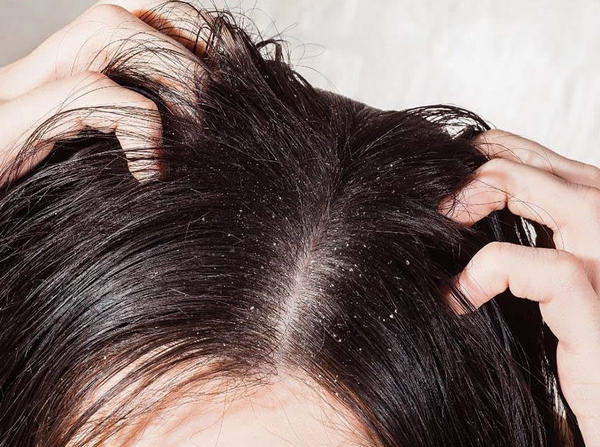What is the cause of dandruff ? + Video
Dandruff is a common condition that affects the scalp. It causes the skin on the scalp to flake and shed, leading to white or yellowish flakes on the hair and clothing. Dandruff can be an embarrassing and uncomfortable problem, but it is not usually serious or harmful. In this article, we will discuss the causes of dandruff and the treatment options available.
What causes dandruff, and how do you get rid of it?
What Causes Dandruff? | How To Treat Dandruff?
Causes of Dandruff:
Dry Skin: One of the most common causes of dandruff is dry skin. When the skin on the scalp becomes dry, it can become itchy and flaky.
Yeast: Another common cause of dandruff is a yeast-like fungus called Malassezia. This fungus is found on the scalp of most people, but some people are more sensitive to it than others. When Malassezia grows out of control, it can cause dandruff.
Skin Conditions: Certain skin conditions, such as eczema and psoriasis, can also cause dandruff. These conditions cause the skin to become inflamed and irritated, which can lead to flaking.

Poor Hair Care: Poor hair care can also contribute to dandruff. Not washing your hair often enough, using too much styling product, and not rinsing your hair thoroughly can all lead to dandruff.
Treatment Options:
Shampoo: The most effective way to treat dandruff is to use a medicated shampoo. Shampoos that contain ingredients like salicylic acid, ketoconazole, and selenium sulfide can help to reduce dandruff. These ingredients work by slowing down the growth of Malassezia and reducing inflammation on the scalp.
Moisturize: Using a moisturizer can also help to reduce dandruff. Moisturizing the scalp can help to reduce dryness and flaking. You can use a scalp oil or a leave-in conditioner to moisturize the scalp.
Avoid Triggers: Avoiding triggers can also help to reduce dandruff. If you know that certain hair products or styling techniques cause your dandruff to flare up, avoid them.
Diet: A healthy diet can also help to reduce dandruff. Eating a balanced diet that is rich in vitamins and minerals can help to keep your scalp healthy and reduce inflammation.
Tea Tree Oil: Tea tree oil has anti-fungal and anti-inflammatory properties that can help to reduce dandruff. You can add a few drops of tea tree oil to your shampoo or apply it directly to your scalp.
Apple Cider Vinegar: Apple cider vinegar can help to restore the pH balance of the scalp and reduce dandruff. You can mix equal parts of water and apple cider vinegar and apply it to your scalp before shampooing.
Stress Management: Stress can also contribute to dandruff. Managing stress through techniques like meditation, yoga, and deep breathing can help to reduce dandruff.
It is important to note that dandruff is a chronic condition that requires ongoing management. Even if your dandruff improves with treatment, it may return if you stop using the medicated shampoo or if you are exposed to triggers. Therefore, it is important to continue using the treatment and managing your scalp health to prevent dandruff from returning.
If your dandruff is severe or does not improve with over-the-counter treatments, you should see a dermatologist for further evaluation and treatment. Your dermatologist may prescribe a stronger medicated shampoo or recommend other treatments like light therapy or oral medication.
In summary, dandruff is a common condition that can be treated with medicated shampoos, moisturizers, and lifestyle changes. Avoiding triggers and managing stress can also help to reduce dandruff. If your dandruff persists or is severe, you should see a dermatologist for further evaluation and treatment. With proper management, most people with dandruff can achieve relief from their symptoms and improve their scalp health.


